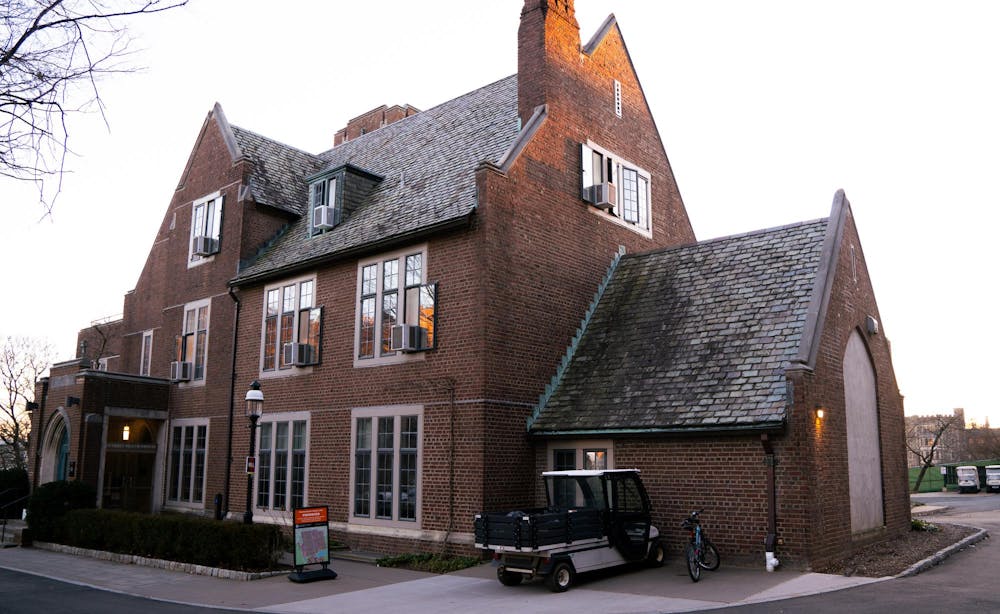Following winter break, McCosh Health Center is seeing an increase in student visits according to University Health Services (UHS), most notably for midwinter respiratory illnesses, including the flu, pneumonia, COVID-19, and respiratory syncytial virus (RSV). Additionally, there has been an increase in gastrointestinal illness due to norovirus, often referred to as the “stomach flu,” during the winter months.
After returning to Princeton from winter break, Kajal Schiller ’25 experienced flu-like symptoms. She later tested positive on a flu test administered at UHS, and spent two nights in the infirmary.
Last year, in 2023, UHS's volume increased from around 1,000 total visits per month in January to 1,800 per month in February, marking a roughly 70 percent increase when students came back from break, UHS Director of Medical Services Melissa Marks wrote in a statement to The Daily Princetonian. This increase included all student medical visits. Data is not yet available for this year, but UHS maintains that there has been an increase in visits since break.
Despite this, according to Marks, “McCosh has maintained a relatively stable amount of facilities for sick students, generally [not running] out of supplies or rooms to care for patients.”
The increase in student visits comes after the news in fall 2023 that UHS is set to expand into a new health center, called Frist Health Center. The University’s new health center will be twice as large as McCosh Health Center and open in 2025.
“I began getting a fever [in the middle of the night], so [UHS was] constantly giving me Tylenol or Motrin at the dedicated time to try to offset the fever,” Schiller said in an interview with the ‘Prince.’
According to Schiller, UHS did not prescribe her antibiotics, and she later received them through her psychiatrist.
“[My psychiatrist] prescribed an antibiotic for me, my sinuses and cough, and after taking the antibiotic for four days, I felt so much better,” she said.
Students have previously cited concerns with receiving care at McCosh, mentioning that UHS has not given them specific care instructions, provided inconsistent directions, and expired tests, and failed to provide treatment for conditions such as fevers. However, post-appointment surveys filled out by students have also noticed high levels of satisfaction.
Schiller mentioned that she wishes UHS could improve on its process of prescribing antibiotics to students.
“They take much longer to prescribe students antibiotics when they really need them,” Schiller said, referencing her first year experience when she was ill for three weeks.
“I kept going in and I kept saying I hadn’t gotten better … and [it] kept getting worse and worse … if [they] would have treated me two weeks earlier, with a simple antibiotic like amoxicillin, it would have cleared up before it became bronchitis,” she said. “I feel like they’re more hesitant on [prescribing antibiotics].”

Other factors contributing to the significant increase in visits to UHS is not just attributed to winter month illnesses, but also “reproductive care, regular physical exams, referrals for specialists, and many types of infections that occur in residential settings where people live together and are in close contact with each other,” Marks wrote.
“The most common health concerns that students present [immediately] upon return from break are sexually transmitted infections,” she added.
To address these acute care visits, UHS has recently created its Acute Care Team, “a team of nurses and physicians working together to support the more acute needs of our student body, [with] increased capacity to discuss medical concerns, provide medical advice, and get students the [necessary] medical appointments,” wrote Dr. Marks. Last year, the University also announced a Lyft voucher program to transport students to and from off-campus medical appointments.
Marks added “we want students to receive the best care which includes timely access to medical advice and appointments.”
Louisa Gheorghita is a staff News writer and a head Photo editor for the ‘Prince.’
Please send any corrections to corrections[at]dailyprincetonian.com.








